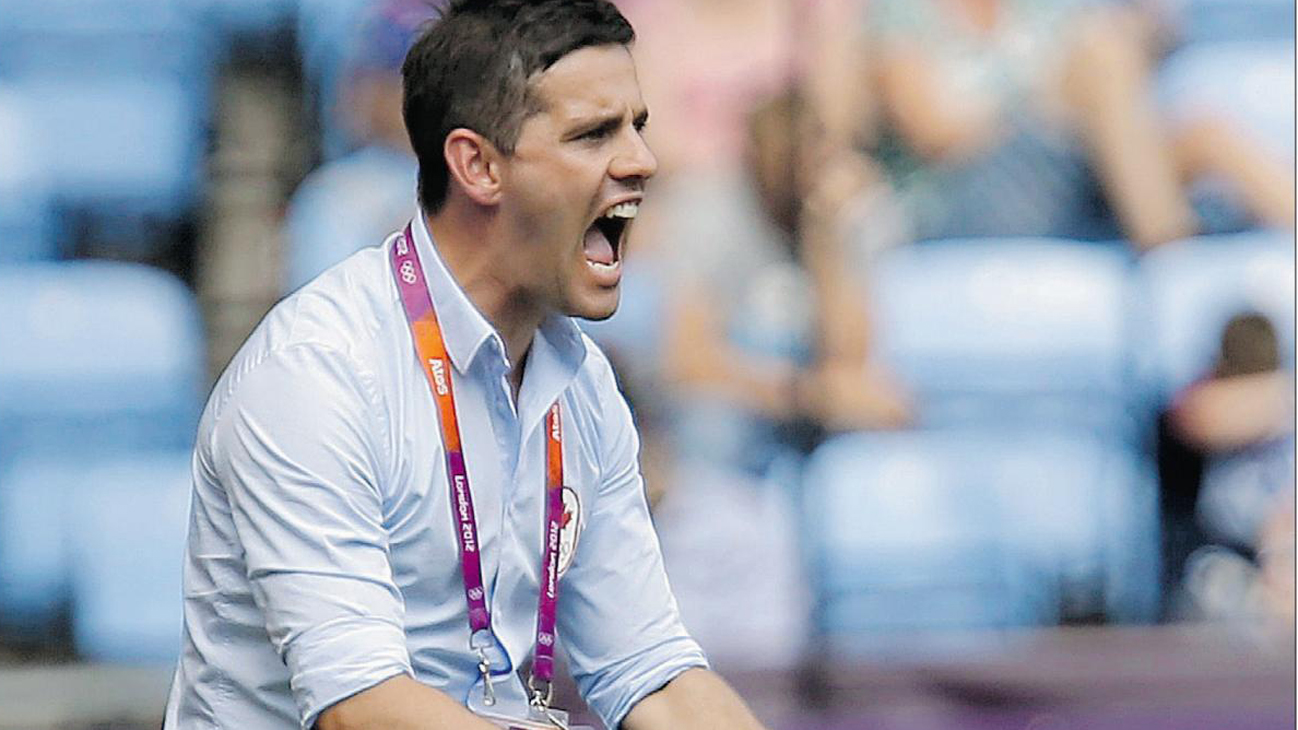From CBC.ca:
It’s been just over a month since John Herdman knelt on the sidelines of the City of Coventry Stadium, vigorously pumping his fists in the air as Diana Matheson secured a bronze medal for Canada. The head coach of the Canadian women’s soccer team could do little else as the emotion of the moment poured in.
“I just remember looking at my watch and seeing 10 seconds left and feeling this gigantic sense of relief wash over me,” Herdman said. “I knew we’d done it – crossed a mental barrier as a team – and knew that it likely wouldn’t have happened if we’d gone to extra time against France.”
Following the win there was little time to reflect or celebrate.
“The whole thing was really strange,” Herdman continued. “Immediately after the game we got whisked off to Wembley. The staff got pushed to the back. And we couldn’t even really see the players get on the podium or celebrate with them.
“Then myself, Christine and two others were put in a cab to the CTV studios and we were there until 4:30 a.m. I had to be up a few hours later for a media appointment, which immediately after that I connected with my family and I was on a plane to Greece for [a] holiday,” which, according to Herdman, was far from a holiday.
“It’s harder chasing my kids around than it is taking the team to the Olympics,” he deadpanned.
But after a quick media tour and learning to get use to his new celebrity (people stop him in the street for photos now) Herdman and his staff are finally getting a moment to think.
They’re reflecting on his first year in charge – a whirlwind to be sure. They’re looking ahead to the immediate challenges they face – primarily fixing a badly fractured youth system. And they’re taking account the expectations that will now follow them to World Cup 2015, when Canada plays host.
“Expectations are the sort of productive paranoia that really drives a team forward. There are big ones there now. The beauty with this group is they’ve now lived up to something. Those experiences will hopefully give them the confidence to go and do it again,” Herdman said.
“Part of my appointment during the job application process was to map out a longer term vision for soccer in Canada. We’re now looking at how to roll out that plan so we can have long-term, sustained success.”
Herdman won’t throw predecessors under the bus
Herdman is too polite to throw his predecessors under the bus for their past shortcomings, but planning across multiple levels is something that has been missing from the women’s game for a long time.
He had the advantage though, during his time in New Zealand, to be allowed to visit countries that had world-class development systems already in place. He got to see firsthand what was working for them and modify it to work for countries with a fraction of the budget. Canada, while clearly on another level financially than New Zealand, can’t spend endless dollars.
“We’re not Germany,” he said. “We can’t put €10 million ($12.6 million Cdn) a year into a talent development system. But what we can do is connect as many of the key people across this country – have them understand the role they need to play in identifying and teaching players – and bring it all together.
“There is a big spend going on right now in women’s soccer which we can’t compete with. But this is one way we can better use the resources we have across Canada.”
In a way, Canada’s size actually prevents it from becoming a powerhouse. In Germany and Japan, the youth soccer centres are highly concentrated because of their limited geographical size. Whereas in Canada, the best players are often separated for most of the year, and that means they are hitting a talent ceiling earlier.
“When you get into places like Germany and Japan you don’t get the ceiling effect that we have here in a country as broad as Canada,” Herdman said. “Good players aren’t playing with great players. Great players are playing with great players. It is crucial to our future development that we ensure that players are not limited by their regional ceiling, or regional coaching.”
Forging ahead to Women’s World Cup in Canada
In his first year since taking the Canadian job, Herdman has been involved in the planning and execution for Olympic qualifying, U-20 World Cup qualifying, the Olympic tournament, the U-20 World Cup and now the U-17 World Cup, which kicked off last week. Canada will host the next women’s World Cup in just over two years time.
Two years in the real world is a long time. Two years in the soccer world passes in a heartbeat.
“We’ve crossed a threshold mentally for women’s soccer in Canada by accomplishing what we did at the Olympics. Technically, tactically and for the future, we still have lots of work to do.”
By Ben Rycroft
CBC.ca

